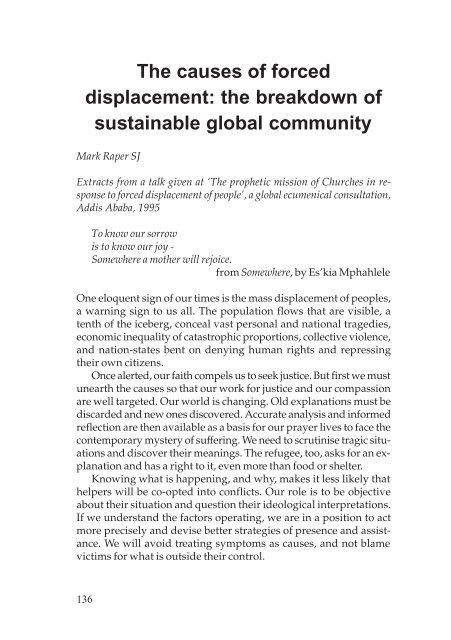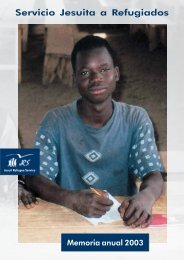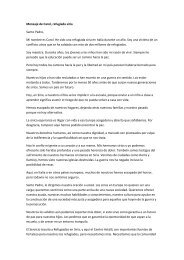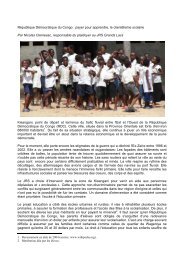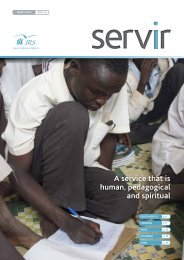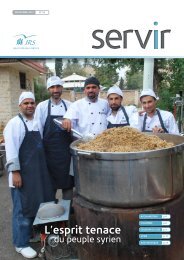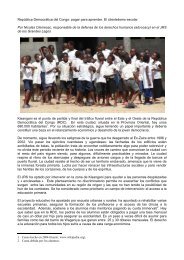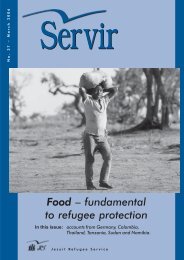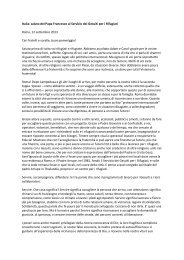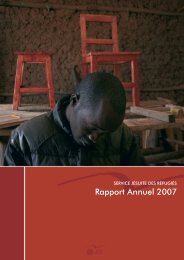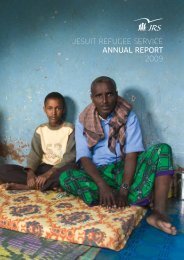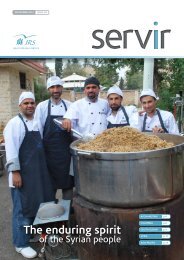EVERYBODY'S CHALLENGE - Jesuit Refugee Service | USA
EVERYBODY'S CHALLENGE - Jesuit Refugee Service | USA
EVERYBODY'S CHALLENGE - Jesuit Refugee Service | USA
You also want an ePaper? Increase the reach of your titles
YUMPU automatically turns print PDFs into web optimized ePapers that Google loves.
The causes of forced<br />
displacement: the breakdown of<br />
sustainable global community<br />
Mark Raper SJ<br />
Extracts from a talk given at ‘The prophetic mission of Churches in response<br />
to forced displacement of people’, a global ecumenical consultation,<br />
Addis Ababa, 1995<br />
To know our sorrow<br />
is to know our joy -<br />
Somewhere a mother will rejoice.<br />
from Somewhere, by Es’kia Mphahlele<br />
One eloquent sign of our times is the mass displacement of peoples,<br />
a warning sign to us all. The population flows that are visible, a<br />
tenth of the iceberg, conceal vast personal and national tragedies,<br />
economic inequality of catastrophic proportions, collective violence,<br />
and nation-states bent on denying human rights and repressing<br />
their own citizens.<br />
Once alerted, our faith compels us to seek justice. But first we must<br />
unearth the causes so that our work for justice and our compassion<br />
are well targeted. Our world is changing. Old explanations must be<br />
discarded and new ones discovered. Accurate analysis and informed<br />
reflection are then available as a basis for our prayer lives to face the<br />
contemporary mystery of suffering. We need to scrutinise tragic situations<br />
and discover their meanings. The refugee, too, asks for an explanation<br />
and has a right to it, even more than food or shelter.<br />
Knowing what is happening, and why, makes it less likely that<br />
helpers will be co-opted into conflicts. Our role is to be objective<br />
about their situation and question their ideological interpretations.<br />
If we understand the factors operating, we are in a position to act<br />
more precisely and devise better strategies of presence and assistance.<br />
We will avoid treating symptoms as causes, and not blame<br />
victims for what is outside their control.<br />
136


